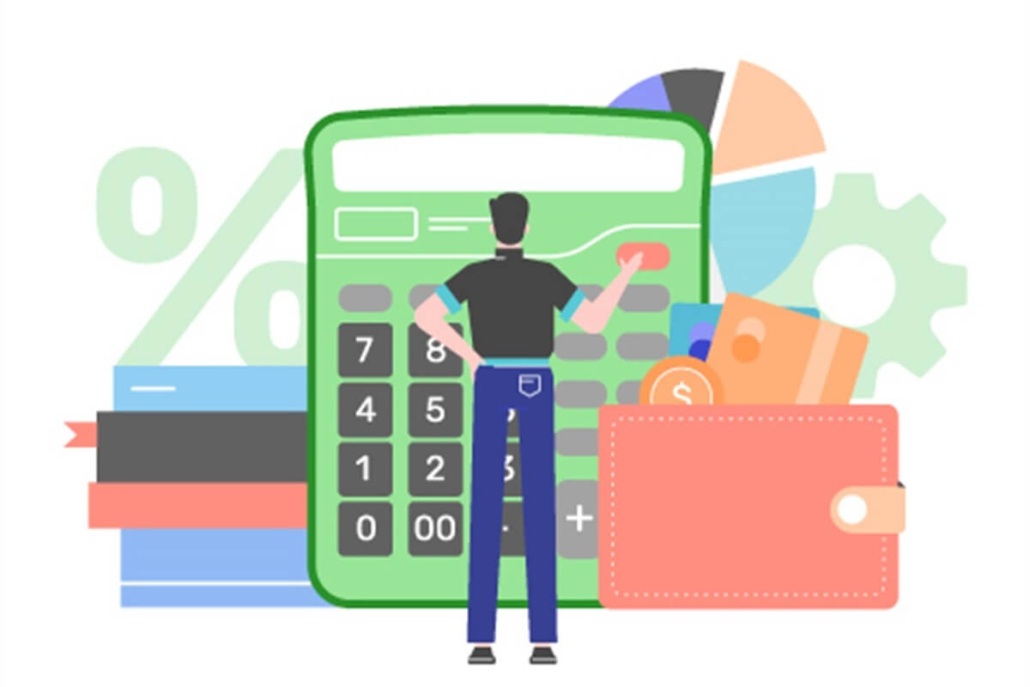Tax on Airbnb Income London, Ontario – Everything You Need to Know
In the vibrant city of London, Ontario, Airbnb has emerged as a popular choice for homeowners looking to generate additional income. However, navigating the tax implications of this income can be complex. This comprehensive guide provides everything you need to know about tax on Airbnb income London, Ontario, ensuring you remain compliant while maximizing your earnings.
Understanding Your Tax Obligations
When you generate income through Airbnb in London, Ontario, recognizing the tax implications of this revenue is paramount. As an Airbnb host, you are deemed a self-employed entity, making your earnings from this platform subject to taxation at both the federal and provincial levels. Here’s a deeper dive into what this entails:
Federal Income Tax
Income earned from Airbnb falls under the purview of federal income tax. The specific amount of tax you owe to the federal government is contingent on your overall income bracket. This necessitates the inclusion of your Airbnb earnings in your T1 personal income tax return, a critical step in ensuring compliance with Canada Revenue Agency (CRA) requirements. It’s imperative to accurately report this income to avoid penalties and interest on underreported earnings.
Provincial Income Tax
Beyond the federal tax obligations, your Airbnb income attracts provincial income tax in Ontario. The rate at which you’re taxed provincially is influenced by your total income, which is segmented into various brackets that determine the applicable rate. Understanding where your income places you in these brackets is essential for accurate tax planning and payments.
This tiered approach to taxation underscores the importance of thorough record-keeping and understanding the nuances of tax obligations at both levels. For Airbnb hosts in London, Ontario, navigating these tax requirements efficiently can lead to a more beneficial financial outcome, ensuring that you meet your obligations while optimizing your tax position.
GST/HST Implications
For Airbnb hosts in London, Ontario, understanding the implications of the Goods and Services Tax (GST) and Harmonized Sales Tax (HST) on your rental income is critical. A key threshold to be aware of is the $30,000 mark: if your total gross rental income from Airbnb surpasses this amount within a 12-month period, you are obligated to register for GST/HST.
This requirement means that beyond merely registering, you must also collect GST/HST from your guests for each booking and subsequently remit these collections to the Canada Revenue Agency (CRA). This process adds a layer of financial management and responsibility to your role as an Airbnb host.
The necessity to register for, collect, and remit GST/HST is a facet of hosting that can easily be overlooked by those new to the platform. It’s essential to monitor your income closely and register for GST/HST as soon as your earnings indicate it’s required. Failure to comply with these tax obligations can lead to penalties, including fines and interest on owed taxes.
Proactively managing this aspect of your Airbnb business can prevent unexpected tax liabilities and ensure you remain in good standing with tax authorities. Regularly reviewing your earnings and staying informed about your tax obligations are key steps in successfully navigating the GST/HST requirements for Airbnb hosts in Ontario.

Municipal Regulations and Taxes
For Airbnb hosts operating in London, Ontario, an important financial aspect to consider is the Municipal Accommodation Tax (MAT). This tax, imposed on short-term rentals, plays a pivotal role in funding local tourism and city development projects. As a host, it’s your responsibility to collect this tax from your guests upon their stay and ensure its timely remittance to the city.
Understanding the MAT Rate
The MAT in London, Ontario, is set at a rate of 4%. This means that for every booking you secure through Airbnb, an additional 4% of the total booking amount should be collected as tax from the guests. This collected tax is then remitted to the city as part of your obligations as a host.
Collection and Remittance Process
The process for collecting and remitting the MAT requires attention to detail to ensure accuracy and compliance. The City of London provides specific guidelines to help hosts understand how to calculate the correct amount of tax, collect it from guests, and subsequently remit it to the municipal authorities. These guidelines are designed to simplify the process for hosts, making it easier to fulfill their tax obligations without disrupting the guest experience.
Deductions and Expenses
One of the key advantages of managing an Airbnb property is the ability to deduct expenses. Common deductible expenses include:
- Utilities: electricity, gas, and water services used by guests.
- Supplies: consumables and supplies provided to guests.
- Maintenance and Repairs: costs associated with maintaining the property in a rentable condition.
- Insurance: specific insurance premiums for short-term rental activities.
- Property Taxes: a portion of your property taxes, based on the percentage of your home used for Airbnb.
Capital Cost Allowance (CCA)
Airbnb hosts in London, Ontario, considering the deduction of property costs or significant renovations from their taxable income can leverage the Capital Cost Allowance (CCA). The CCA serves as a method for hosts to claim depreciation on their property, acknowledging the wear and tear or diminishing value of the property and its improvements over time. This can offer a tangible tax benefit, reducing the taxable income derived from Airbnb operations.
Understanding CCA
The CCA is essentially a tax deduction that allows property owners to write off the cost of the physical assets of their business over a period of time. For Airbnb hosts, this could include the purchase price of the property used for rental purposes, as well as any significant improvements or renovations made to enhance its value or rental appeal.
How CCA Works
To claim CCA, hosts must first determine the class in which their property and any renovations fall. Different classes have different rates of depreciation, as set by the Canada Revenue Agency (CRA). Once the appropriate class is identified, hosts can calculate the amount of depreciation they can claim each year, thereby reducing their taxable income.
Implications of Claiming CCA
While claiming CCA can provide immediate tax relief, it’s crucial for hosts to be aware of the long-term implications, especially concerning property sale. When a property on which CCA has been claimed is sold, the CRA may recapture any CCA claimed if the sale price exceeds the property’s tax value (the purchase price minus any CCA claimed). This recaptured amount is then added to the host’s income for the year of the sale, potentially resulting in a higher tax bill.
Strategic Considerations
Given the potential for CCA recapture, hosts should carefully consider whether to claim CCA on their property. It’s often advisable to consult with a tax professional who can provide personalized advice based on the specific circumstances and long-term goals of the host. This consultation can help weigh the immediate benefits of tax reduction against the potential future tax liabilities upon the sale of the property.

Record Keeping
For Airbnb hosts in London, Ontario, meticulous record-keeping is not just recommended; it’s a fundamental aspect of managing your rental business and ensuring compliance with tax laws. Detailed records of income and expenses serve as the backbone for accurate tax filings and can safeguard hosts in the event of an audit. Here’s an expanded view of how to approach this crucial task:
Why Record-Keeping Matters
Maintaining comprehensive records allows hosts to:
- Track the profitability of their rental property.
- Maximize tax deductions by accurately documenting deductible expenses.
- Ensure compliance with tax laws, reducing the risk of penalties.
- Facilitate easier preparation of annual tax returns.
What to Keep
Hosts should retain:
- Income Records: Documentation of all income received from Airbnb, including booking confirmations and payment receipts.
- Expense Receipts: Receipts for all expenses related to the rental, such as utilities, maintenance, cleaning services, and supplies provided to guests.
- Bank Statements: Monthly statements that reflect Airbnb transactions can help verify income and expenses.
- Contracts and Agreements: Copies of service contracts or agreements with third parties, such as property management services or cleaning companies.
- Tax Documents: Any documents received related to tax filings, including GST/HST registration documents and communications from the Canada Revenue Agency (CRA).
Digital Record Keeping
In today’s digital age, transitioning to electronic record-keeping can streamline the process. Using software or apps designed for financial management or specifically for rental properties can help hosts:
- Organize records efficiently, making it easier to access specific documents when needed.
- Automatically track income and expenses, reducing manual entry errors.
- Generate financial reports, assisting in the analysis of the rental property’s performance.
Retention Period
The CRA requires taxpayers to keep their records for a minimum of six years from the end of the last tax year they relate to. This period ensures that, in the event of an audit, hosts have all the necessary documentation to support their tax filings and claims.
Best Practices
- Regularly update records: Make it a habit to record transactions as they occur to avoid backlogs and ensure accuracy.
- Review records periodically: Regular reviews can help catch errors or omissions early, making tax time less stressful.
- Seek professional advice: Consider consulting with a tax professional or accountant who can provide guidance tailored to your situation, especially when dealing with complex issues like depreciation or the Capital Cost Allowance.
Avoiding Common Pitfalls
Navigating the tax landscape as an Airbnb host in London, Ontario, comes with its unique set of challenges and potential pitfalls. Being aware of these common mistakes and understanding how to avoid them can save hosts from facing unnecessary financial burdens and ensure they are maximizing their income potential. Here’s a detailed look at key areas where new hosts often stumble and strategies for avoiding these common pitfalls:
Not Reporting Airbnb Income
One of the most significant oversights is failing to report income earned from Airbnb rentals. All income, regardless of the amount, must be reported to the Canada Revenue Agency (CRA). Not doing so can lead to penalties, interest, and audits. Ensure every dollar earned from your rental is accurately reported on your tax return.
Misunderstanding GST/HST Obligations
New hosts may not realize that crossing the $30,000 threshold in rental income within 12 months requires them to register for, collect, and remit GST/HST. Understanding this obligation and registering on time can prevent back taxes and penalties. Even if you haven’t reached this threshold, voluntary registration might offer benefits in the form of input tax credits.
Overlooking Deductible Expenses
Many hosts miss out on claiming all the legitimately deductible expenses. This includes not just the obvious costs like cleaning and maintenance but also less apparent ones such as home office expenses, a portion of mortgage interest, and property taxes. Keeping a detailed record and understanding what expenses are fully or partially deductible can significantly reduce taxable income.
Ignoring Capital Cost Allowance
While claiming Capital Cost Allowance (CCA) for property depreciation can offer tax advantages, it’s a double-edged sword due to its impact on future property sales (recapture of CCA). Hosts often either overlook this deduction or don’t consider the long-term implications. A balanced approach, ideally with professional advice, is crucial.
Not Complying with Municipal Regulations
Failure to adhere to local regulations, including zoning laws and the Municipal Accommodation Tax (MAT), can result in fines and legal issues. Staying informed about and compliant with local laws is essential for operating a legitimate and profitable Airbnb business.
Poor Record Keeping
Inadequate record-keeping makes it difficult to prove income and expenses if audited. Maintain organized records of all transactions, receipts, and documents related to your Airbnb business. This practice not only supports your tax filings but also aids in financial planning and analysis.
Handling Taxes Without Professional Help
The complexity of tax laws related to rental income often requires expertise beyond the knowledge of most individuals. Seeking advice from a tax professional who understands the nuances of rental property income can provide peace of mind, ensure compliance, and optimize tax outcomes.
Strategies for Success
By recognizing these common pitfalls and implementing strategies to avoid them, Airbnb hosts in London, Ontario, can ensure they’re meeting their tax obligations while maximizing their rental income. Engaging in ongoing education, diligent record-keeping, and consulting with tax professionals are key steps in navigating the complexities of Airbnb taxation successfully.
Conclusion
In conclusion, understanding the intricacies of tax on Airbnb income London, Ontario, is crucial for hosts to effectively manage their financial obligations and maximize their earnings. This comprehensive guide has provided valuable insights into federal and provincial tax obligations, GST/HST implications, municipal taxes such as the Municipal Accommodation Tax (MAT), and strategic tax planning strategies like the Capital Cost Allowance (CCA). By staying informed, avoiding common pitfalls, and implementing sound record-keeping practices, Airbnb hosts can navigate the complexities of taxation with confidence, ensuring compliance and optimizing their financial outcomes in the vibrant city of London, Ontario.
Check out:












